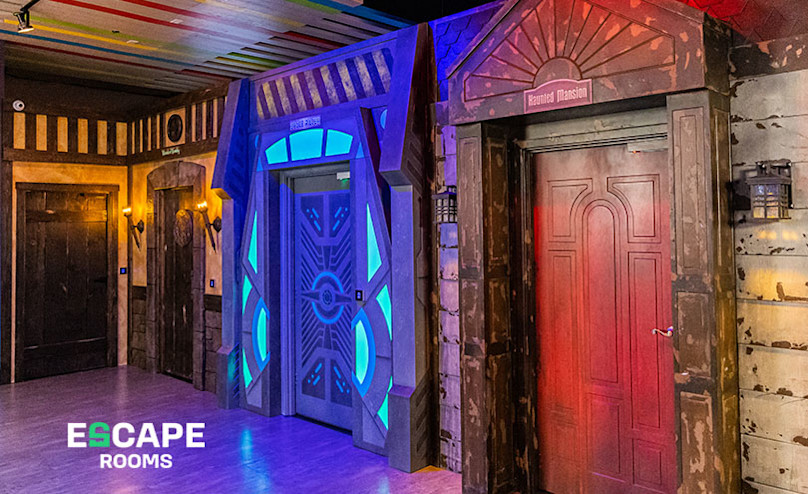Group Strategies: How to Team up Effectively in a Getaway Room
Navigating the complexities of an escape space demands even more than plain enthusiasm; it needs a well-coordinated strategy based in clear communication, critical role jobs, and experienced time administration. Teams have to actively listen per participant's understandings, appoint functions that line up with private toughness, and preserve regular check-ins to make certain focus and protect against redundancy. By fostering a setting that values cohesion and versatility, teams can considerably heighten their performance and success rates. The subtleties of these strategies can change the experience, yet how precisely can they be implemented to maximize the capacity for success?
Establish Clear Interaction

To facilitate clear interaction, it is essential to designate a main factor of call for information circulation. Quick, focused updates from each team participant can keep the group educated without overwhelming them with information.

Appoint Functions Tactically
While clear communication sets the foundation for reliable team effort, designating roles tactically ensures that each team participant's staminas are used effectively. In a getaway space scenario, the time-sensitive and complex nature of difficulties requires an efficient method to job delegation. By identifying and leveraging individual proficiencies, teams can enhance their analytic capacities and enhance total efficiency.
Someone with a keen eye for information may stand out in finding concealed things, while a rational thinker can be better fit to fixing problems. This role often requires strong business and social abilities.
2nd, make certain that roles are versatile and versatile. As new challenges arise, the team must be able to pivot, reallocating jobs as needed. This flexibility assists maintain momentum and avoids traffic jams that can happen due to rigid function assignments.
Ultimately, a strategic approach to duty task not just maximizes the strengths of each employee but additionally cultivates a natural environment, driving the team towards a successful getaway.
Use Diverse Skills
Identifying and harnessing the varied abilities within your group can substantially boost your efficiency in a getaway room. Each staff member brings special toughness to the table, and properly leveraging these capacities can speed up analytic and improve overall efficiency. A group member with solid analytical skills might stand out at understanding complex codes or patterns, while another with keen empirical capacities might swiftly detect hidden hints that others could neglect.
Motivate group members to articulate their understandings and ideas immediately, guaranteeing that all prospective remedies are considered. Furthermore, appointing jobs that align with each member's strengths can prevent traffic jams and ensure that progress is continual.
Additionally, diversity in skills frequently translates to variety in believing styles, which is indispensable in an escape area setup. While some difficulties may call for you could try these out rational reasoning and accuracy, others may take advantage of creative and side thinking. By identifying and leveraging this variety, teams can attend to a wider variety of obstacles better, consequently enhancing their opportunities of a successful retreat.
Manage Time Successfully

First, designate initial mins for a fast survey of the room. Determine noticeable problems and split tasks based upon staff member' strengths, guaranteeing that nobody is idle. Set interior time checkpoints to assess progression regularly; why not try these out for instance, objective to have half the puzzles addressed by the mid-point of the video game. This practice can aid maintain the group focused and protect against time from escaping undetected.
Additionally, prevent passage vision. If a problem is taking too long, revolve employee or proceed to an additional obstacle, returning later on with fresh point of views. Interaction is vital-- keep everyone updated on solved challenges and staying tasks to stay clear of redundant initiatives.
Last but not least, make use of any type of tips or clues moderately but tactically - best escape room. Knowing when to request help can save useful time. By sticking to these time management concepts, groups can dramatically improve their opportunities of a successful and pleasurable getaway area experience
Debrief and Reflect
Representation is a vital facet of team development and enhancement in the context of getaway rooms. As soon as the challenge is finished, whether efficiently or not, it is critical for the team to take part in a structured debriefing session. This procedure permits employee to analyze their performance, determine toughness, and identify areas for enhancement.
Start the debrief by reviewing what went well. Highlight specific instances of effective communication, analytic, and partnership. Identifying these favorable actions strengthens them go to this web-site and encourages their repetition in future difficulties.
Discuss moments of confusion, miscommunication, or ineffective strategies. Urge an open and constructive discussion where team members can share their viewpoints without anxiety of criticism.
Conclusion
In final thought, successful partnership in a getaway space is based upon clear communication, critical duty jobs, the effective usage of diverse skills, and skilled time management. By producing a natural and flexible team atmosphere, the likelihood of effectively fixing challenges and accomplishing the purpose of leaving the area is significantly boosted.